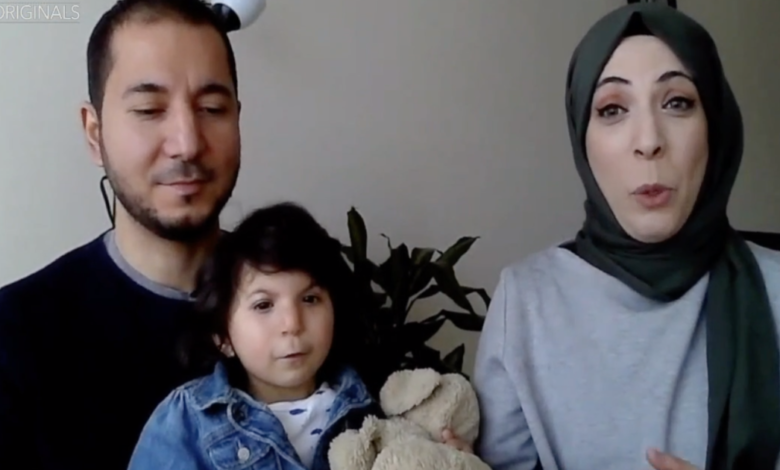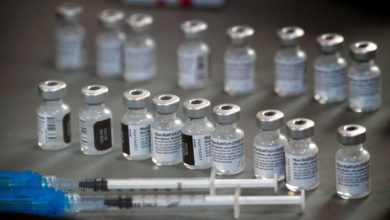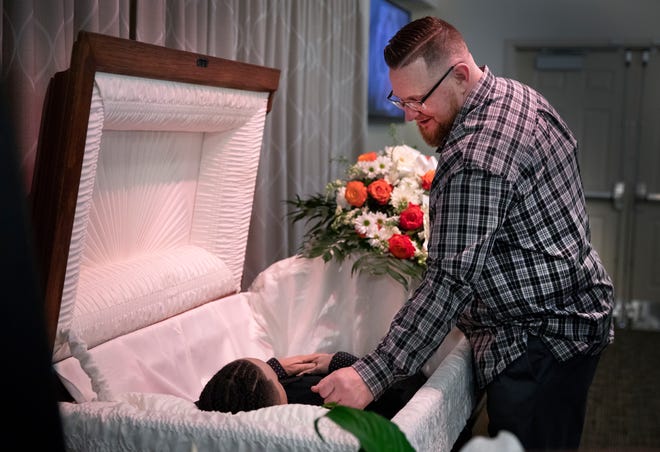
CLEVELAND — February is American Heart Month. The focus is usually on adults, but even the tiniest of hearts need TLC, and there is groundbreaking surgery happening on babies in utero.
The Ghaib family's littlest girl turns two in March and she has a big story.
“We couldn't imagine after the first diagnosis that we would reach this point now,” said Dr. Doaa Saleh. “It is beyond amazing."
Amazing because when Doaa was 20 weeks pregnant with Nadine, she and Ali received devastating news: the ultrasound showed their baby girl had a life-threatening heart defect.
“We may lose her in the pregnancy or soon after the pregnancy,” she remembers doctors telling them. “It was devastating news for every mother.”
Even more devastating, their doctors in Dubai said there was nothing they could do. But Doaa would not be defeated.
A doctor herself, and superfan of "Grey's Anatomy", she remembered an episode where they performed surgery on a baby in utero.
“I could've never imagined that 'Grey's Anatomy' could literally change my baby's life,” she said. “That it could save it!
The couple did research and found only a few places in the world perform such a surgery, but there was a plot twist to this real-life script. The medical team they chose was 7,000 miles away in Cleveland, Ohio, and they had to get there as soon as possible.
They packed up their first child, a toddler, and flew the 22 hours from Dubai to Cleveland; a city they'd barely heard of, to entrust their unborn child's life in the hands of the Congenital Heart Collaborative at University Hospitals Rainbow Babies & Children’s Hospital.
“The fact that they put that much trust in us, is humbling,” said Dr. James Strainic, a University Hospitals pediatric cardiologist and surgeon.
Photo courtesy of University Hospitals.
The procedure is called fetal pulmonary valvuloplasty. The medical team uses ultrasound to guide a needle through mom's abdomen and into the baby's tiny heart to open a valve that's stuck closed.
“And the way we do that is with a really small balloon,” said Strainic. “It's only about 3-4 mm in size. We blow up the balloon and it kind of rips open the door and we prevent something called hypoplastic right ventricle, or half-of-a-heart syndrome.”

University Hospitals.
Mom is awake during the procedure which can take hours, even days in Doaa’s case, for the baby to get into the exact right position.
There is a risk with the procedure.
Strainic says about 10% of the fetuses they do these procedures on die in utero.
“There are circumstances where we could do the procedure after the baby is born, and in fact we don't offer the procedure to people if we think that we would have a successful procedure after the baby is born,” said Strainic. “We reserve this only for the fetuses that we are pretty sure are going to develop that half-a-heart syndrome."
Doaa said it was an easy decision for them because of the great benefit they felt confident it would give their daughter.
“If there was any percentage that I can save my baby from everything they told us about, I will take it,” she said.
Nadine and Strainic got to meet for the first time several months after she was born.

Photo courtesy of University Hospitals.
“It is something, you get all the feels as they say,” recalled Strainic.
Today, Nadine is a happy, healthy and normal toddler.
“Whatever she wants to do, she will do it,” smiled dad, Ali.
“Yeah, I am the boss,” echoed Nadine.
This boss baby, whose name means hope, is now giving that to families around the world as the embodiment of the life-saving medical treatments happening in Cleveland.
“When we went back to Dubai and the doctors there saw the results of Nadine’s heart surgery and her amazing recovery, they saw her like a miracle baby,” said Doaa. “That's why they now tell the parents about the options they have."
Every year, one in 100 babies born in the United States has a congenital heart defect.
Strainic says it's important to share stories like Nadine’s, to raise awareness and funding for research. He is currently part of a team at Nationwide Children’s Hospital to develop a heart valve that can be put into a fetus and will grow with the child over time, preventing years of heart surgeries and transplants.
Before moving to Dubai, Doaa and Ali lived in Iraq, but left after the war. The family now lives in Montreal. Doaa is active on social media.
She uses the platform to raise awareness about Nadine’s journey as well as advocate for the rights of women and children around the world.
This story originally reported by Katie Ussin on News5Cleveland.com.







